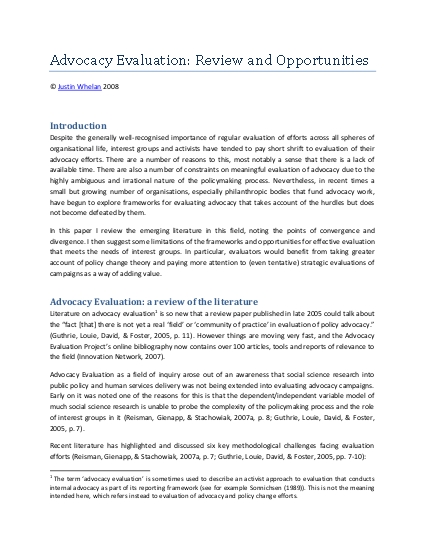
Despite the generally well-recognised importance of regular evaluation of efforts across all spheres of organisational life, interest groups and activists have tended to pay short shrift to evaluation of their advocacy efforts. There are a number of reasons to this, most notably a sense that there is a lack of available time. There are also a number of constraints on meaningful evaluation of advocacy due to the highly ambiguous and irrational nature of the policymaking process. Nevertheless, in recent times a small but growing number of organisations, especially philanthropic bodies that fund advocacy work, have begun to explore frameworks for evaluating advocacy that takes account of the hurdles but does not become defeated by them. In this paper I review the emerging literature in this field, noting the points of convergence and divergence. I then suggest some limitations of the frameworks and opportunities for effective evaluation that meets the needs of interest groups. In particular, evaluators would benefit from taking greater account of policy change theory and paying more attention to (even tentative) strategic evaluations of campaigns as a way of adding value.